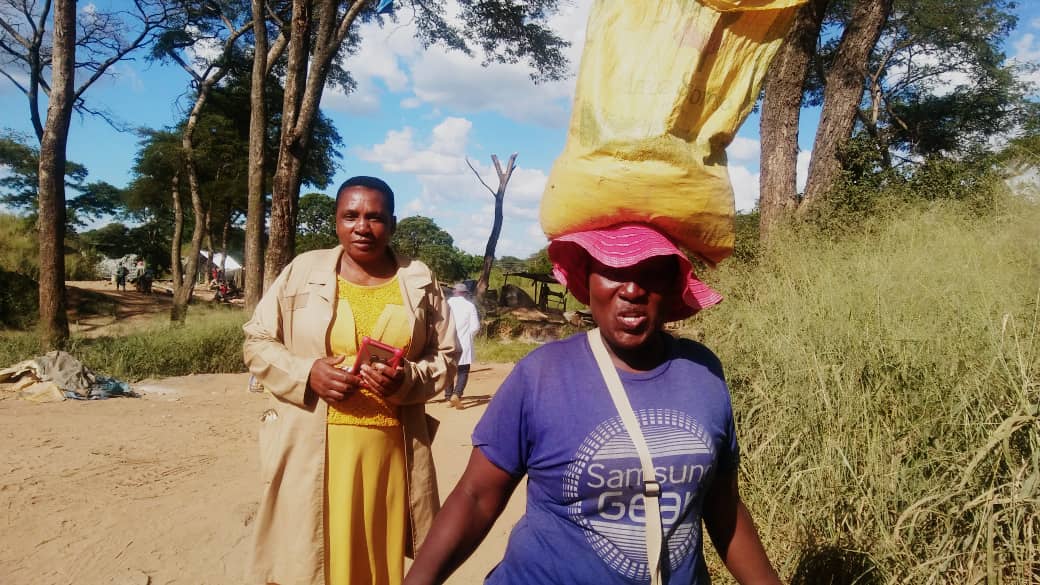The Zimbabwe Environmental Law Association (ZELA) said the International Women’s Day was an opportune time to reflect on progress made, to call for change, and to celebrate acts of courage and determination by women and girls who have played an extraordinary role in the history of mankind including in the natural resource management sector.
The environmental stewardship advocacy body said the 2021 International Women’s Day #IWD2021 came during a difficult time in people’s lives where the COVID-19 pandemic has brought in compounded challenges to millions of people globally, with women and girls having not been spared either.
“Despite the pandemic having highlighted the immense contributions by women, sadly new barriers have emerged. Therefore, now more than ever, we must strive for an equal and sustainable future for all while ensuring that women and girls are not left behind in the formulation and implementation of COVID-19 response and recovery strategies. This year’s theme celebrates women’s contribution in different facets of our lives, “Women in Leadership: Achieving an equal future in a COVID-19 world.”
“As we drive this year’s campaign theme, “Choose to Challenge, “we Choose to challenge all barriers to gender equality in the natural resource sector, choose to challenge the poor involvement of women in decision making processes and choose to challenge the factors that are contributing to an increase in gender inequality. The theme also speaks to the priority theme of the 65th session of the Commission on the Status of Women, “Women’s full and effective participation and decision-making in public life, as well as the elimination of violence, for achieving gender equality and the empowerment of all women and girls.” Gender inequality is an overwhelming injustice of our time and the biggest human rights challenge we face, which must be challenged by all and sundry,” ZELA said.
ZELA said in the Zimbabwean context, it is saddening to note that women remain largely excluded from owning land or effectively participating in resource management specifically in decision-making processes.
However, ZELA is pleased to note how transformative interventions have seen several women partaking in natural resources governance. In the mining sector, some women have managed to make inroads into the sector and are now competing and working alongside men.
“It is however important to note that, the mining sector remains masculine due to various reasons including cultural, social, economic barriers, and many other barriers. Therefore, as we commemorate the #IWD2021, celebrating the tremendous efforts of women, it is also critical to ensure that the strides that have been made to promote their participation and involvement in the decision processes are not reversed. For us to achieve sustainable natural resource management, women need to be involved in positions of leadership so that they continue to influence the decision-making processes.”
Snippets on how ZELA has #chosen to challenge:
- ZELA has been implementing a project that seeks to ensure that gold is sourced in a traceable, safe, and responsible manner. The organisation is working with women miners, ensuring that their rights are respected, protected and promoted. The project ensures that the contracts between Artisanal and Small-Scale Miners (ASM) and sponsors are not exploitative, are well documented, and aligned with the country’s legal frameworks and international regulations like Organisation for Economic Co-operation and Development (OECD)’s due diligence guidelines for responsible mineral supply chains.
- ZELA is also building the capacity of women to organize and mobilize on women’s right to land and realisation of equitable benefits from their natural resources. A unique approach to resource governance has also seen the organisation training some women to be community monitors and paralegals, building their capacities to actively identify and monitor the realisation of Environmental, Economic, Social, and Cultural (EESC) rights in their different localities. They have continuously shared information which has enabled the organisation to act on cases of environmental injustice and make notable contributions to the legal, policy, and institutional frameworks governing the environment and natural resources sector for broad-based sustainable environmental and socio-economic development.
- Through the Digging for Equality project which aims to improve security, gender equality, and women’s empowerment in the artisanal mining sectors, the organisation is supporting women working in the ASM sector to reduce the barriers that they face and support their efforts towards gender equality.
- ZELA is a member of the Platform for Gender and Extractives in Zimbabwe which convenes the annual Gender and Extractives Symposium, a multi-stakeholder dialogue and engagement space created by the Platform to stimulate interest and collaborative effort in engendering the mining sector in Zimbabwe.
- Under the African Wildlife Foundation, whose programs and conservation strategies are designed to protect wildlife and ensure a more sustainable future for Africa’s people, and the Zimbabwe Resilience Building Fund, a programme that seeks to contribute to increased capacities of communities to protect development gains and achieve improved well-being outcomes in the face of shocks and stresses, women are not being left behind. ZELA is working with women to actively partake in wildlife management.
- Under the TROCAIRE project, ZELA continues to empower female smallholder farmers to participate fully in the agriculture sector including capacitating them to ascertain their rights.
- Through the Women Can Do It (WCDI) project, ZELA has managed to make concerted efforts in the struggle for the realisation of women’s rights and drive towards gender equality. The project aims at promoting women’s organization skills including networking, advocacy, lobby, and mobilization so that they become change-makers and be influential in society, and even be determined to partake in decision-making positions on equal terms with their male counterparts.
